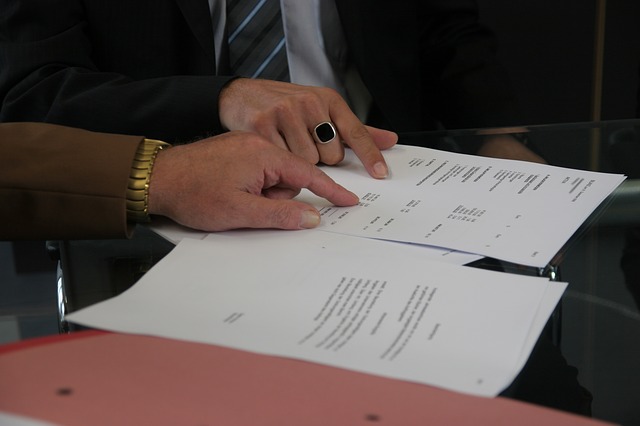A lease agreement is a pact made by two parties that gives permission to one party to use an owner’s asset. These agreements are typically used for rental properties but there are occasions where they apply such as rentals of vehicles, construction equipment, and other items. It is a legal contract that protects the owner of the property and the person leasing the asset. All the aspects of the agreement are outlined in the document so that each party understands what is expected of him in regards to rights and obligations.

Terms
Commonly Used in a Lease Agreement
- Duration: the period of time the lease agreement will be in effect
- Rent: the amount of rent that the owner expects to receive each month and the consequences for failing to pay by the due date
- Deposits: the exact amount of each deposit, the purpose and conditions for a refund at the end of the agreement
- Occupancy: the maximum number of people allowed to live in the premises. If the agreement refers to a car it may list the number of people permitted to drive it.
- Terms of use: the purpose of using the property and other forbidden illegal acts committed in the property.
- Utilities: which utilities are considered the responsibility of the tenant
- Repairs and maintenance: who does the repair and maintenance of the property.
Rental
Agreement
This agreement provides for use of a property at a specified period of time. It is commonly signed for a period for six months to one year and is often valid for a period of 30 days. At the end of this period, the rental agreement automatically renews for the next period. The terms of the agreement will be considered valid during this period of time. However, either party can change the terms of the agreement without giving prior notice.
Residential
Lease Agreement:
This is a contract that is made between the landlord of a property and a tenant for a period of time. it allows the tenant to live in the property and use it for the duration as shown in the lease and the tenant agrees to pay the monthly rent. Many residential leases are valid for up to one year or more depending on the landlord. However, most of the landlords are flexible and willing to rent out their property even for just three months. Other common provisions include:
- The names of the people who live on the property
- Prohibit the house from being subleased
- Forbid the premises for being used for commercial purposes
- Prohibit pets within the premises
- Prohibiting the tenant from causing disturbances and disrupting the peace of fellow tenants
- Forbid illegal activity
Failure to abide by the terms of the agreement may result in the landlord taking legal action and evict the tenant. When this happens, the tenant may be ordered to pay the remaining months as well as an extra amount for breaching the lease.
If the lease ends under normal circumstances, it is the responsibility of the tenant to notify the landlord well in advance of his intent to move out. If he does not do so, the monthly payments will be automatically renewed on a monthly basis. The landlord is not allowed to lease the residence to a new tenant before the agreement of the previous tenant has expired.
Commercial
Lease Agreement
This is a contract that is made between a property owner and a business. It allows businesses to use a rental property and pay for the duration it stays there instead of buying the property. This type of agreement has a number of benefits for various business types and the main advantage is that it takes a lower amount of cash to lease a property.
Commercial lease agreements are more complex compared to residential leases. The terms of the agreement vary greatly and these will often depend on the property owner and the business. The terms of a business lease are more accommodation than residential leases in the following ways:
- Fewer consumer protection laws
- The laws are more negotiable and the terms can change. If there are improvements to the property the rent can increase
- Commercial leases often last for more than five years
It is important for a business to ensure the property meets its needs before entering into an agreement with the property owner. The business should be comfortable with the location of the property and ensure it meets the zoning requirements of operating a business.
Lease
Agreement Form
These forms are basic in nature in order to make it possible for both parties to fill in information as they wish. Both parties should read carefully the contract to ensure the provisions suit their needs. The law requires certain information to be included in the lease agreement although these vary depending on the State. However, the minimum information that should be included are:
- Name, physical address and contact information of the landlord
- Mane and phone number of the tenant
- Terms of the lease
- Deposit amount required and terms of refund
- Amount of monthly payments
- Consequences of late payments
- Terms regarding pets
Breach
of Lease Agreement
The landlord has a legal right to terminate the lease if the tenant is in breach of a lease agreement. The common breach of agreement happens when a tenant does not abide by the provisions of the lease or fails to pay the rent on time. However, many landlords will not rush to go with this option because it is difficult to find a new tenant after eviction. Therefore, they prefer to work through the problem with a tenant because this is a less expensive option. Even when such allowances are made possible, the landlord still can decide to evict the tenant if he breaches the contract. He still retains that right but is expected to follow certain laws first.

